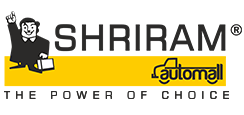Changing Priorities: Safety Takes the Wheel in India's Car Market in 2023
Gone are the days when 'Kitna deti hai' (How much does it give in terms of mileage) was the primary concern for car buyers in India. According to a recent study commissioned by Skoda Auto India and conducted by NIQ BASES, 9 out of 10 Indian customers now prioritize cars with a crash safety rating.

Skoda India boasts an impressive line-up of cars in the country, including the Slavia sedan, Kushaq compact SUV, and Kodiaq premium SUV. Out of these models, both the Slavia and Kushaq have undergone crash tests specifically for the Indian market and have achieved an exemplary 5-star safety rating according to Global NCAP.
The survey conducted by Skoda India spanned across 10 states, including Tamil Nadu, Karnataka, Andhra Pradesh, Telangana, Rajasthan, Maharashtra, Gujarat, Delhi, West Bengal, and Uttar Pradesh. The findings revealed that the crash safety rating of a car was the primary factor influencing car purchases in India, surpassing the number of airbags and fuel efficiency, which now hold the second and third positions, respectively.
This shift in consumer preferences can be attributed to the alarming rise in road accidents in India. Every year, approximately 1.5 lakh people lose their lives on Indian roads, averaging to 1,130 accidents and 422 deaths per day, or 47 accidents and 18 deaths every hour.
The survey targeted individuals between the ages of 18 and 54, with 80 percent male respondents and 20 percent female respondents. Among the participants, 67 percent were current car owners who possessed vehicles priced above Rs 5 lakh, while the remaining 33 percent intended to make car purchases in the upcoming years. Impressively, 92 percent of the respondents expressed their preference for crash-tested cars, with 22.2 percent seeking a 5-star safety rating, 21.3 percent preferring a 4-star rating, and only 6.8 percent considering cars with 0-star ratings.
Furthermore, 47.6 percent of the survey participants stated that safety took precedence over additional features offered by the vehicle. Around 30 percent emphasized the significance of separate child and rear occupant safety, while fuel efficiency ranked lower on the list of customer demands with a score of just 15 percent.
Although India currently lacks a standardized crash test rating system, the government has actively promoted car safety by mandating multiple safety features as standard in recent years. The introduction of Bharat NCAP, India's own safety rating system is in progress. Until then, consumers rely on crash test ratings provided by independent organizations such as Global NCAP.
Global NCAP rates vehicles on a scale from zero to five, evaluating their safety features and performance during crash tests. These assessments encompass adult and child safety, with higher-rated cars considered safer for occupants. Global NCAP's crash test norms include evaluations of frontal and side impact protection, Electronic Stability Control (ESC), and pedestrian protection.
The paradigm shift towards prioritizing safety in the Indian car market reflects a growing awareness among consumers about the importance of protecting lives on the road. As car manufacturers respond to this demand, we can anticipate a future where crash-tested and highly-rated cars become the norm, ensuring a safer journey for all on India's roads.
Follow us on Facebook, Instagram and YouTube for latest updates on the Vehicles and Equipment Auctions, Industry News and more.
For more information about Shriram Automall India Limited (SAMIL), our services and brands, please visit www.samil.in

 Download Our App
Download Our App



